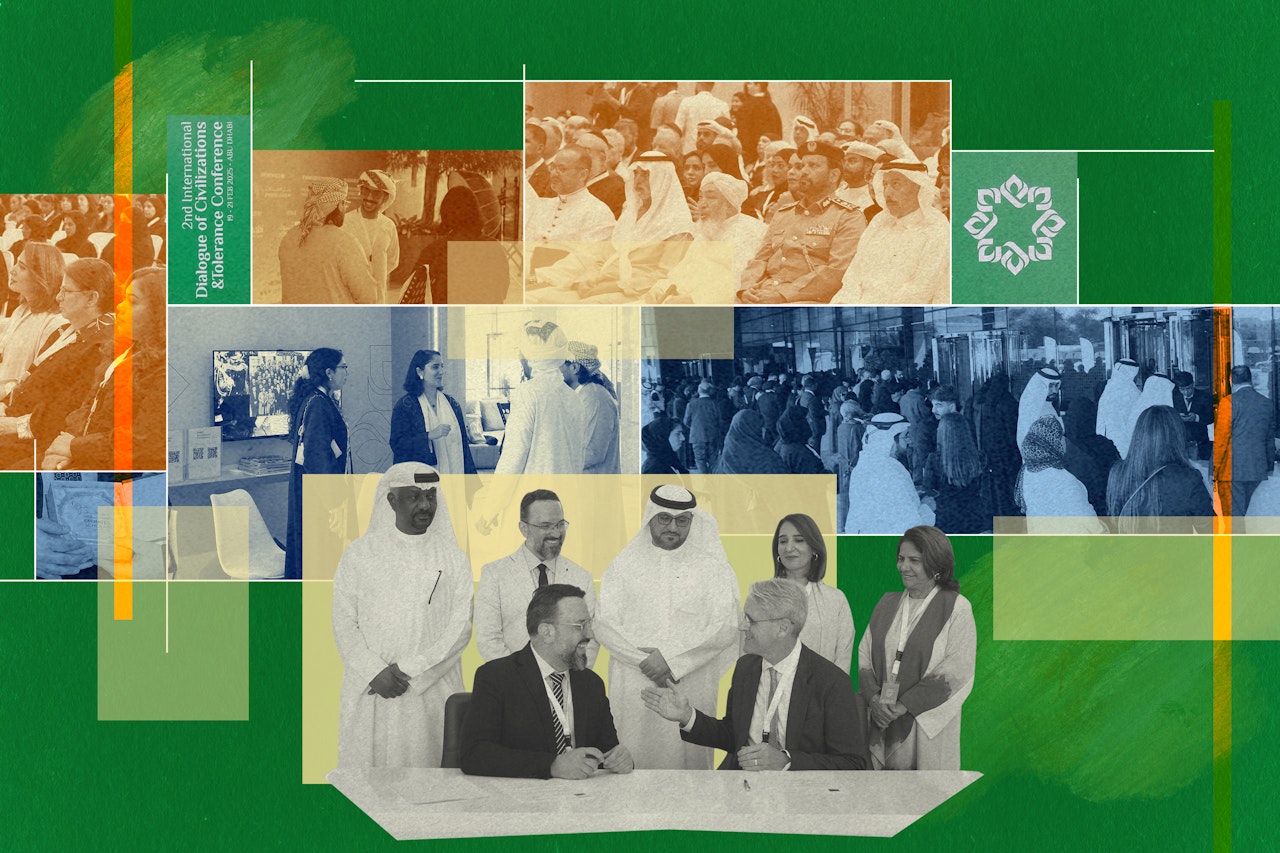United Arab Emirates
Recognizing youth as protagonists of social change
Moral and spiritual education can foster youth’s potential to contribute to social harmony, say representatives of the Bahá’í community at a conference in the UAE.

Moral and spiritual education can foster youth’s potential to contribute to social harmony, say representatives of the Bahá’í community at a conference in the UAE.

ABU DHABI, United Arab Emirates — The 2nd International Dialogue of Civilizations and Tolerance Conference held recently in Abu Dhabi explored the vital part that youth can play in building a more cohesive and peaceful society.
“Increasingly it is youth who, less encumbered by outmoded ways of thinking, recognize that the human race is one and its populations are interdependent,” stated David Rutstein, Secretary-General of the Bahá’í International Community, in his address to a plenary session.
The conference, sponsored by His Excellency Sheikh Nahayan Mabarak Al Nahyan, Minister of Tolerance and Coexistence in the United Arab Emirates and the Emirates Scholar Center for Research and Studies, brought together over 3,000 academics, faith communities, policymakers, and representatives of civil society from 112 countries.
Dr. Rutstein emphasized the spiritual principle of the oneness of humanity: “Humanity is one species comprised of people with an infinite diversity of physical traits who create and live in different societies and cultures, all of which occupy the same single beautiful planet.
“A dispassionate assessment of current environmental, economic, and political realities demonstrates the intertwined facet of our existence, our essential human oneness and interdependence,” he continued. “The acceptance of this fact is a prerequisite for advancing a unified global community.”
Dr. Rutstein observed that despite a disposition among youth to embrace oneness, “youth are still frequently regarded as threats or problems to be solved. Even well-intentioned institutional efforts designed to empower them often confine their engagement to specific issues rather than broader societal challenges.”
He noted that “about 40% of the world’s population is under 24 years of age” and that “recognizing and releasing this potential can lead to new patterns of interaction between generations,” but “this requires profound rethinking of attitudes and assumptions about youth.”
In his presentation, Dr. Rutstein shared how Bahá’í community-building initiatives around the world are translating this vision into reality: “The Bahá’í community has explored these questions through community-based initiatives in which training is crucial,” he explained. “These educational programs, open to all regardless of background, develop not only practical skills but also attitudes and convictions about the kind of individuals you can and wish to become—contributors to a peaceful and just world.”
Roeia Thabet, a member of the Office of Public Affairs of the Bahá’ís of the United Arab Emirates who attended the gathering, explained in a conversation with the News Service how Bahá’í moral and spiritual educational programs provide environments where youth can channel their energy toward constructive change.
“What distinguishes the time of youth from other stages of life is the courage, flexibility, and energy, along with the eagerness to create social change,” she said. “Young people possess an acute sense of justice and the motivation to be at the forefront of constructive initiatives.”
Dr. Rutstein highlighted the transformation that takes root in youth as they reflect on and explore the application of spiritual principles with their peers. “When youth internalize the principle of oneness, they develop a longing to serve their society.
“They become inspired to make a difference not only in their neighborhood but in the wider society, in ways that are truly impactful.”
The full presentation of Dr. Rutstein can be viewed here.